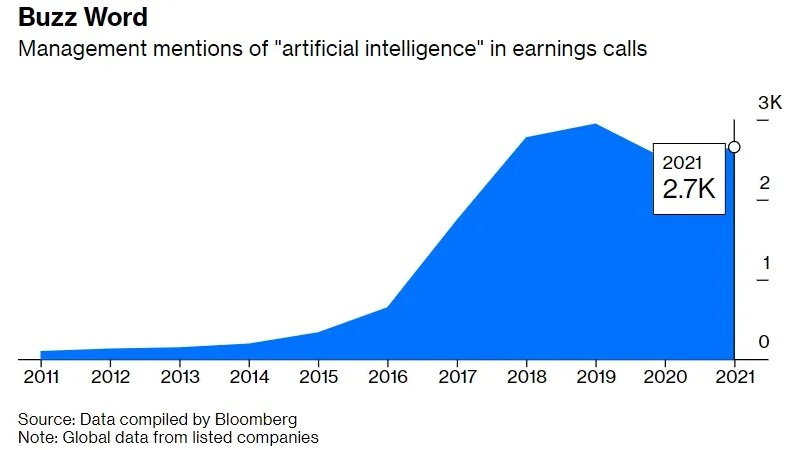💥 Here's more evidence AI is having a big impact on our world. But, you know, faster, please!
Also: 5 Quick Questions for … economist Stephan Heblich on slavery and the British Industrial Revolution
In This Issue
The Essay: Here's more evidence AI is having a big impact on our world. But, you know, faster, please!
5QQ: 5 Quick Questions for … economist Stephan Heblich on slavery and the British Industrial Revolution
Micro Reads: nuclear revival, Meta metaverse, life on Mars, and more
Quote of the Issue
“People in 1900 did not consider the internet or nuclear power unlikely: they did not conceive of them at all. So our own future will be shaped by knowledge that we do not yet have. We cannot even predict most of the problems that we shall encounter, or most of the opportunities to solve them, let alone the solutions and attempted solutions and how they will affect events.” - David Deutsch, The Beginning of Infinity
The Essay
Here's more evidence AI is having a big impact on our world. But, you know, faster, please!
We’re not even two years into the 2020s — assuming that you buy into the notion that decades begin with a year ending with “1.” Which you should. So even though roaring inflation isn’t what I mean by a “New Roaring Twenties,” I’m still upbeat about what the rest of the decade holds in store. And, yes, that will be my attitude even if the Federal Reserve’s belated inflation-fighting efforts throw the US economy into recession. Which will probably happen.
I absolutely still think it’s possible that in 2031, we will look back at the 2020s as a period when technological progress resulted in faster-than-expected productivity growth (my key NRT metric). A reasonable baseline expectation? Let me again refer to the Long Bets wager between productivity optimist Erik Brynjolfsson (economist, Stanford University) and productivity pessimist Robert Gordon (economist, Northwestern University). That wager:
To put that 1.8 percent number in context, Gordon points out that US productivity growth averaged 1.1 percent annually from 2010 through 2019, 2.1 percent from 2005 through 2009, 3.3 percent from 1996 through 2004, 1.5 percent from 1973 through 1995, and 3.2 percent per year from 1948 through 1972. So while 1.8 percent wouldn’t make anyone forget the boomy late 1990s or the postwar Golden Age, it would be a notable upshift. And when you consider the current Congressional Budget Office productivity forecast is for 1.5 percent, Brynjolfsson’s bet hardly seems a wild wager.
That said, it’s also worth taking a look at his reasoning:
AI is a general-purpose technology that is affecting almost every industry while accelerating the pace of discovery. Recent breakthroughs in machine learning will boost productivity in areas as diverse as biotech and medicine, energy technologies, retailing, finance, manufacturing and professional services. … The productivity benefits of general-purpose technologies typically take years to show up in the official statistics. In fact, productivity is initially suppressed as organizations invest time and effort creating intangible assets like new business processes, new skills, new goods and new services. However later, these investments are harvested, boosting productivity. The result is a productivity J-curve. Recent research indicates that are approaching the rising part of the productivity J-curve for the AI and related technologies.
The good news here is that “intangible assets like new business processes, new skills, new goods and new services” are being created. I’ve previously noted good news about a) business spending on hiring AI expertise, b) private AI investment, c) startup investment, and d) AI education. Also this:
The part of AI-machine learning that gets me most excited is its potential to “accelerate the pace of discovery” and thus combat the problem that big ideas are getting harder to find. So I looked with great interest at several relevant slides from the new State of AI Report by AI investors Nathan Benaich and Ian Hogarth. To what extent is machine learning aiding the discovery process?
Keep reading with a 7-day free trial
Subscribe to Faster, Please! to keep reading this post and get 7 days of free access to the full post archives.






